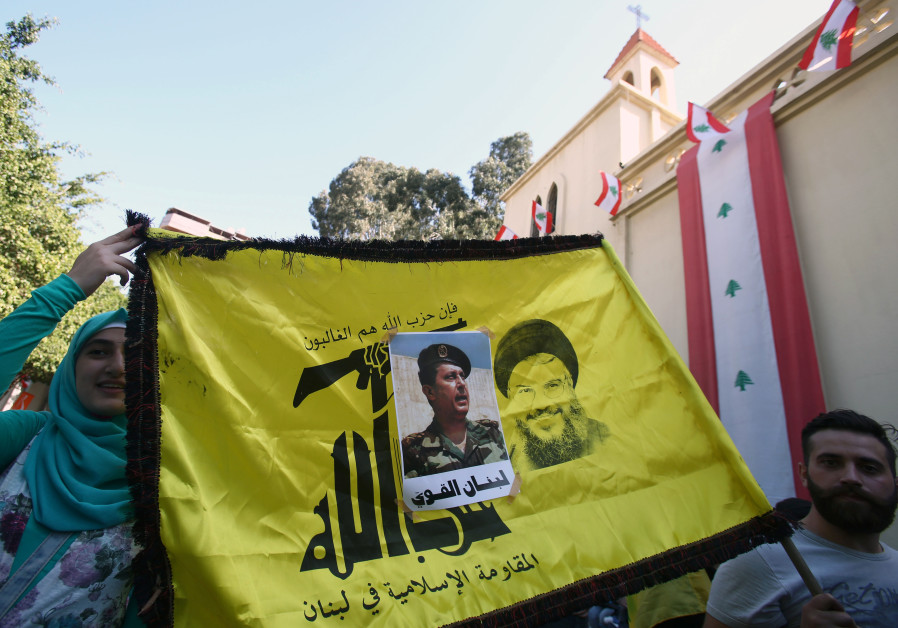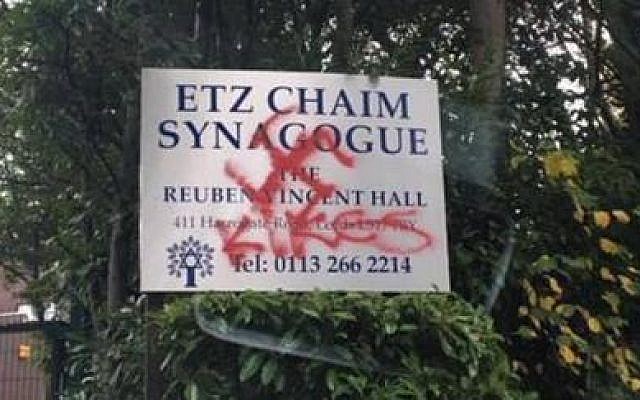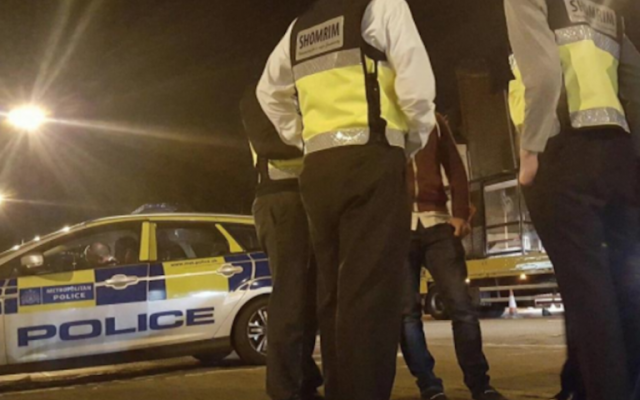 Mroczny sekret dwulicowych akademików
Mroczny sekret dwulicowych akademików
Giulio Meotti
Tłumaczenie: Małgorzata Koraszewska
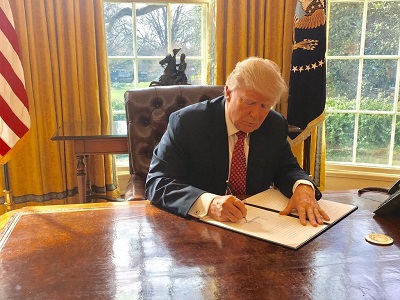 Prezydent Donald Trump podpisuje 6 marca 2017 r. dekret prezydencki 13780, który ogranicza wjazd do USA z pewnych krajów oraz przez wszystkich uchodźców, którzy nie posiadają albo wizy, albo ważnego dokumentu podróży. (Zdjęcie: The White House)
Prezydent Donald Trump podpisuje 6 marca 2017 r. dekret prezydencki 13780, który ogranicza wjazd do USA z pewnych krajów oraz przez wszystkich uchodźców, którzy nie posiadają albo wizy, albo ważnego dokumentu podróży. (Zdjęcie: The White House)
Restrykcje Stanów Zjednoczonych na wjazd podróżnych z sześciu krajów o muzułmańskiej większości (wybranych przez byłego prezydenta, Obamę) – chyba że, jak powiedział prezydent Donald J. Trump, będzie można ich sprawdzić – wywołały gniew zachodniej społeczności akademickiej. Ich niepokój wydaje się koncentrować wokół sprawy wykluczenia ze Stanów Zjednoczonych badaczy i uczonych z krajów islamskich obłożonych sankcjami przez administrację amerykańską.
Harvard, Yale i Stanford poszły do sądu przeciwko Białemu Domowi. 171 stowarzyszeń naukowych i organizacji akademickich protestowało przeciwko temu, co błędnie zatytułowali “muzułmańskim zakazem” Trumpa. “Wśród ludzi dotkniętych tym dekretem są akademicy i studenci, którzy nie mogą uczestniczyć w konferencjach i w swobodnej wymianie myśli” – głosi apel podpisany przez 6 tysięcy naukowców, akademików i badaczy z całego świata.
Co może być bardziej “postępowego” niż zachodnia społeczność akademicka, walcząca o utrzymanie otwartych bram dla naukowej wymiany? Niestety, wielu z tych, którzy podpisywali te apele, walnie przyczyniło się do szerzenia rasistowskich apeli wzywających do bojkotowania ich izraelskich kolegów. To jest, do wprowadzenia na tych samych uniwersytetach „zakazu wstępu dla Izraelczyków”. Taka dyskryminacja nie jest stosowana wobec naukowców z Jemenu lub Somalii, ale tylko wobec tych, którzy mają paszport państwa żydowskiego.
Na przykład, Nadine el Enany, pierwsza sygnatariuszka apelu przeciwko “muzułmańskiemu zakazowi” Stanów Zjednoczonych, jest jedną z sygnatariuszek apelu o bojkotowanie jej izraelskich kolegów akademickich. Ten sam podwójny standard stosuje się do Sarah Keenan i Billa Bowringa oraz do włoskiej profesor Paoli Bacchetta, która wykłada “gender studies” na Berkeley. Arshin Adib-Moghaddam, profesor literatury w SOAS University in London, oznajmił, że jako protest przeciwko domniemanej “ksenofobii” Trumpa, odwoła podróż do USA, gdzie miał przedstawiać swoją książkę. A co z protestem przeciwko jego ksenofobii? Postępowe „sumienie” nie przeszkodziło Adib-Moghaddamowi w podpisaniu apelu o bojkotowanie izraelskich badaczy i profesorów.
Są dziesiątki przykładów profesorów – takich jak Gareth Dale, promotor doktorantów w Brunel University, i Steven Rose, brytyjski profesor, który od 2002 r. podpisuje apele przeciwko Izraelowi – którzy walczą o prawa irańskich badaczy, ale chcą pozbawić tych samych praw izraelskich badaczy.
Prokuratorzy generalni 16 stanów twierdzili, że zakaz Trumpa szkodzi uniwersytetom. Gdzie byli ci prokuratorzy generalni, kiedy grupy akademickie w USA zatwierdzały bojkot izraelskich uczonych? Missouri State University ogłosił poparcie tych studentów, którzy mogliby być dotknięci zakazem Trumpa. Dlaczego żaden uniwersytet nie rozpoczął podobnej kampanii na rzecz uczonych izraelskich dotkniętych bojkotem?
Roger Waters, jedna ze znanych postaci świata artystycznego, który atakował zakaz Trumpa, w zeszłym roku wzywał Radiohead do odwołania koncertu w Izraelu. Zarząd studencki University of Wisconsin-Madison jednogłośnie uchwalił rezolucję o dywestycji z firm izraelskich.
Znana uczona Ruth Wisse zanotowała ten paradoks w „Wall Street Journal”:
“Jeśli uniwersytety są gotowe walczyć z rządowym zakazem wjazdu dla studentów z krajów o muzułmańskiej większości, dlaczego członkowie ich kadry nauczycielskiej walczą o niedopuszczenie wymiany z akademickimi kolegami w ich żydowskiej ojczyźnie?”
Restrykcje administracji USA utrudniające wjazd potencjalnie wrogich imigrantów miały na celu zapobieżenie terrorystycznym atakom na Amerykanów i ich wolny, demokratyczny sposób życia. Celem kampanii przeciwko Izraelowi jest atakowanie jedynej demokracji od Casablanki do Calcutty – miejsca, gdzie studenci muzułmańscy są wolni; wolniejsi, w rzeczywistości, niż w wielu krajach arabskich.
Kiedy Trump podpisał ten dekret prezydencki, cały świat powstał przeciwko USA. Ale nikt nie protestował, przeciwko 16 państwom muzułmańskim (w tym Jemen, Iran, Irak i Syria), w których obowiązuje całkowity zakaz wjazdu do ich krajów dla Izraelczyków. Autor i historyk, Martin Kramer napisał:
“W rzeczywistości sześć z siedmiu krajów, które figurują w dekrecie prezydenckim Trumpa, zakazuje wjazdu posiadaczom paszportów izraelskich: Iran, Irak, Libia, Sudan, Syria i Jemen. (Robi to także kolejne dziesięć państw z muzułmańską większością.) Te same sześć państw nie wpuści także nikogo, kto ma paszport nie-izraelski, ale z izraelską wizą”.
Gdzie byli ci liberalni profesorowie i badacze, którzy teraz atakują zakaz Trumpa, kiedy wiele krajów muzułmańskich zamknęło drzwi dla Żydów?
Znakomity historyk, Bernard Lewis napisał już w 2006 r.:
“Praktycznie rzecz biorąc, wszystkie rządy arabskie ogłosiły, że nie będą dawać wiz Żydom z jakimkolwiek obywatelstwem. To nie było ukradkiem – to było publicznie proklamowane na formularzach wizowych i w literaturze turystycznej. Powiedzieli zupełnie wyraźnie, że ludzie wyznający religię żydowską, niezależnie, jakie mają obywatelstwo, nie otrzymają wizy i nie dostaną pozwolenia na wjazd do niepodległego kraju arabskiego. Raz jeszcze nie było ani słowa protestu nigdzie i od nikogo. Można sobie tylko wyobrazić oburzenie, gdyby Izrael ogłosił, że nie będzie dawać wiz muzułmanom, a jeszcze bardziej, gdyby zrobiły to Stany Zjednoczone”.
Wisse notuje kolejny paradoks w tych haniebnych, podwójnych standardach: “Nie przypadkowo Iran i Syria, dwa kraje, których obywatele mają zakaz wjazdu do USA, są także oddane zniszczeniu Izraela”.
Mrocznym sekretem pełnej hipokryzji klasy akademickiej wydaje się być to, że w rzeczywistości cieszy ich pomysł zniszczenia Izraela.
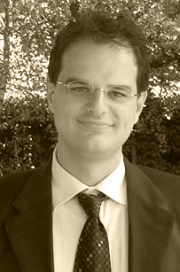 Giulio Meotti
Giulio Meotti
Włoski publicysta, autor książki „A New Shoah: The Untold Story of Israel’s Victims of Terrorism”.
Zawartość publikowanych artykułów i materiałów nie reprezentuje poglądów ani opinii Reunion’68,
ani też webmastera Blogu Reunion’68, chyba ze jest to wyraźnie zaznaczone.
Twoje uwagi, linki, własne artykuły lub wiadomości prześlij na adres:
webmaster@reunion68.com


